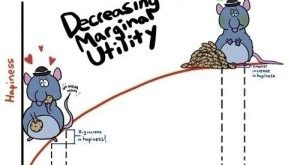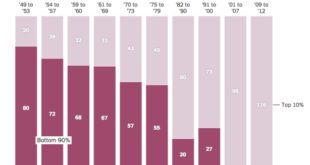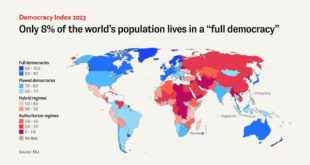from Dean Baker Peter Coy used his column yesterday to beg President Biden not to use the term “greedflation” to explain the runup in inflation since the pandemic. I am sympathetic to much of his argument, most importantly, the idea that corporations suddenly turned greedy is a bit far out. As Coy notes, corporations are always greedy. The real question is whether something unusual was going on with corporate profits in the pandemic. There clearly was an increase in profit margins in the...
Read More »Why and how economics must change
from Jayati Ghosh Economics needs greater humility, a better sense of history, and more diversity The need for drastic change in the economics discipline has never been so urgent. Humanity faces existential crises, with planetary health and environmental challenges becoming major concerns. The global economy was already limping and fragile before the pandemic; the subsequent recovery has exposed deep and worsening inequalities not just in incomes and assets but in access to basic human...
Read More »“The Political Economy of COVID-19”
New book from WEA Books At the beginning of 2020, the outbreak of Covid-19 and the lockdown practices imposed worldwide generated a global economic crisis that challenges the traditional explanations of economic downturns . Like the economic crisis of 2008, the Covid-19 pandemic crisis was systemic and global, and this collection of essays examines it in a broad geographical and historical context. Kindle $6.00 Paperback $14.99Amazon US UK FR DE IN ...
Read More »Utility theory — explaining everything and nothing
from Lars Syll Despite the rise of behavioral economics, many economists still believe that utility maximization is a good explanation of human behavior. Although evidence from experimental economics and elsewhere has rolled back the assumption that human agents are entirely self-interested, and shown that altruism and cooperation are important, a prominent response has been to modify individual preference functions so that they are “other-regarding”. But even with these modified...
Read More »Income inequality in the USA increased with each expansion
Pavlina R.Tchemevra is the source of the data for this chart which appeared in September 2014 in the New York Times in an article by Neil Irwin “The Benefits of Economic Expansions Are Increasingly Going to the Richest Americans”. Can anyone source or provide an updated version of this chart?
Read More »The Commons of Ameland: An Uncommon History.
There is no ‘tragedy of the Commons.’ But a tragedy of the absence of Commons-as organizations, let’s call it ‘the tragedy of uncommons’, does exist. Below, I will provide the example of the island of Ameland in the Northern Netherlands, in line with the historical examples of successful Commons mentioned by Elinor Ostrom (especially those for Switzerland). Ownership is a multi-dimensional concept. Up to the 1795 revolution, the island of Ameland, north of Friesland, was not a part...
Read More »Complexity and Econ 100
from Maria Alejandra Madi and RWER issue 106 Complexity is characteristic of a system that preserves the differentiation among its constituent elements while also preserving their identity. Complexity also implies dynamic systems, that is to say, open totalities of interrelated parts constantly changing in spacetime. The complexity of a system is related to the coexistence of intertwined parts in spacetime and complexity is intrinsic to real-world natural, economic and social processes...
Read More »The problem with economics — too much maths, too little history
from Lars Syll Mainstream economists have always wanted to use their hammer, and so have decided to pretend that the world looks like a nail. Pretending that uncertainty can be reduced to risk and that all activities, relations, processes, and events can be adequately converted to pure numbers, have only contributed to making economics irrelevant and powerless when confronting real-world financial crises and economic havoc. How do we put an end to this intellectual cataclysm? How do we...
Read More »Three principal strategies for theorizing a “new economics of ecological limits”
from Richard Parker and RWER issue 106 Back in the late 1960s, a tiny band of unconventional economists encountered an environmentalism in the midst of radical rethinking. Prompted by Carson’s Silent Spring, capitalism and its science were being accused of major crimes—against nature, our fellow species and humankind itself. Hiroshima had shattered confidence in the benignity of Progress, especially Progress through Markets and Corporate Science. Now that skepticism looked around...
Read More » Real-World Economics Review
Real-World Economics Review






